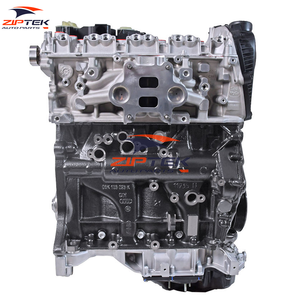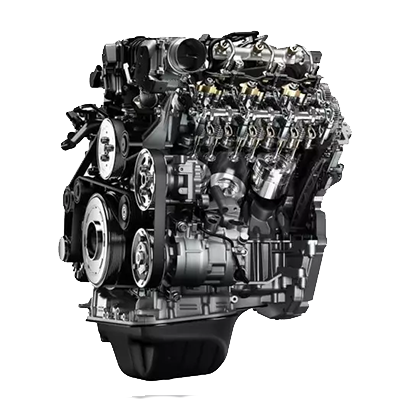Inexpensive Amarok Engine for Sale-- Boost Your Car's Efficiency with Us
Inexpensive Amarok Engine for Sale-- Boost Your Car's Efficiency with Us
Blog Article
Browsing the Process of Engine Selection: Secret Elements to Take Into Consideration
The process of engine choice is a complex venture that demands cautious evaluation of a number of crucial variables to ensure placement with functional goals. Efficiency requirements, gas effectiveness, and financial restrictions are just the start; considerations around environmental influence and maintenance assistance play an essential role in the decision-making structure. Recognizing how each of these aspects interacts can considerably influence the performance and longevity of your investment. The complexities of each variable may not be quickly obvious, motivating more assessment of exactly how to purposefully browse this complicated landscape.
Efficiency Requirements
When picking an engine, it is crucial to develop clear performance demands that straighten with the designated application. Efficiency demands incorporate a range of elements, including power result, torque characteristics, and responsiveness, which need to be tailored to the details demands of the car or machinery concerned.
Power output, normally determined in horse power, establishes the engine's capability to thrust an automobile or carry out a job successfully. Torque, on the other hand, is vital for applications needing strong initial acceleration or heavy lifting capacities. An understanding of the operational environment is additionally important; as an example, engines made for off-road applications may need various performance qualities compared to those planned for highway use.
Furthermore, take into consideration the functional tons and task cycle, as these elements influence the engine's durability and reliability. In high-load scenarios, a durable engine style might be required to avoid early wear or failure.
Gas Effectiveness Considerations
While efficiency requirements are critical, gas efficiency is similarly vital in the engine option process, as it straight impacts operating expense and environmental sustainability. Fuel-efficient engines take in less gas per system of work executed, which not just reduces general expense however additionally minimizes greenhouse gas emissions. As organizations significantly prioritize sustainability, choosing an engine that maximizes fuel efficiency can improve business duty and compliance with ecological regulations.
When reviewing gas efficiency, it is important to think about the engine's layout and technology - amarok engine for sale. Advancements such as turbocharging, straight fuel injection, and crossbreed systems can substantially boost fuel economy. Additionally, understanding the operating conditions and duty cycles of the engine application is important; engines may carry out differently under differing tons and speeds
Additionally, suppliers usually provide gas consumption information that can be made use of to compare various engine options. In summary, gas efficiency is a multi-faceted factor to consider that calls for comprehensive evaluation throughout the engine selection process.
Budget and Cost Analysis
Budget plan and cost analysis functions as an essential part in the engine selection procedure, influencing both short-term financial investments and long-lasting functional expenditures. When reviewing possible engines, it is necessary to consider not just the preliminary acquisition price but also the overall expense of possession, which encompasses installment, maintenance, gas usage, and possible downtime.
A thorough evaluation needs to start with the in advance prices related to the engine, consisting of required modifications or ancillary tools. Focusing entirely on first expenses may lead to illinformed decisions. Examining operating expenses over the engine's life expectancy is equally essential, as a lot more costly engines may use superior fuel effectiveness or minimized upkeep needs, eventually leading to set you back savings.

Environmental Influence Elements
Understanding environmental influence aspects is necessary in the engine selection procedure, as sustainability considerations have actually come to be significantly essential for both regulatory compliance and corporate obligation. Organizations has to examine the discharges created by different engine types, including co2, nitrogen oxides, particulate matter, and unburned hydrocarbons. These emissions contribute significantly to air pollution and environment modification, requiring a careful analysis of the engine's eco-friendly impact.
In addition, fuel kind plays a crucial duty in blog environmental influence. Engines powered by renewable resource sources, such as biofuels or hydrogen, tend to have a reduced ecological influence compared to standard nonrenewable fuel sources. In addition, the lifecycle evaluation of the engine, from manufacturing via operation to disposal, should be considered to recognize the full scope of its environmental implications.

Upkeep and Support Alternatives
When selecting an engine, the availability of maintenance and support choices is an essential factor to consider that can considerably impact functional performance and durability. Comprehensive maintenance intends make sure that the engine operates at peak performance and decreases unexpected downtimes. It is necessary to evaluate the producer's support network, including the accessibility of qualified service technicians and service centers.
Examining the access of spare parts is additionally vital. A trustworthy supply chain for components can lower preparations for fixings and maintenance, consequently boosting total productivity. Additionally, think about the simplicity of acquiring technological paperwork and training sources, which are vital for guaranteeing that workers are well-appointed to manage regular and emergency situation situations.
An additional vital aspect is the guarantee and service contracts offered by the supplier. Ultimately, an aggressive approach to upkeep and support not only prolongs the life of the engine but also contributes to the general success of the procedure.
Final Thought
To conclude, the procedure of engine selection necessitates a comprehensive analysis of different essential factors, including efficiency requirements, gas efficiency, budget plan constraints, ecological influence, and maintenance assistance. By meticulously analyzing these components, notified choices can be made that straighten with functional purposes and sustainability objectives. Ultimately, a strategic approach to engine choice will guarantee ideal efficiency and longevity while addressing economic and ecological factors to consider successfully.
While efficiency needs are important, fuel performance view publisher site is similarly vital in the engine selection process, as it directly impacts operating costs and ecological sustainability. As companies significantly focus on sustainability, picking an engine that optimizes gas efficiency can improve corporate obligation and conformity with environmental laws.
Additionally, comprehending the operating problems and responsibility cycles of the engine application is crucial; engines might execute differently under differing tons and rates. (amarok engine for sale)
Assessing operating expenses over the index engine's life-span is equally crucial, as extra expensive engines may supply superior gas performance or decreased upkeep demands, ultimately leading to set you back savings.
In verdict, the procedure of engine selection requires a detailed assessment of numerous essential elements, consisting of performance requirements, fuel effectiveness, spending plan restraints, environmental effect, and upkeep support. - amarok engine for sale
Report this page